In Part 1 of this series, I summarised the CA(SA) qualification journey, you can read that here. Here, I’ll discuss some reasons why students struggle so much, and why the pass rates I mentioned in Part 1 are so low. This can help others understand some of the challenges students face and may also help students understand why they’re battling (and whether it’s normal!)
A lot of the CTA student struggles are mental stresses. A lot of the challenges are about their mindset, habits, mental spaces, because these things affect every thing they do. Getting good mental prep is really important. This is why I believe that the Study Coaching I do is so important. When you look at a lot of the challenges they face, you can see that advice like ‘work harder’ or ‘study longer’ isn’t actually going to do the trick!
There’s no sense of achievement along the way
The only things that matters is qualifying Chartered Accountant. It’s a really long qualification, so small victories along the way don’t matter much. Passing their first year, BCompt degree, CTA; these are small victories that you may be proud of, but any accounting student has probably already moved on to worrying about the next exam.
Feeling this lack of achievement for so long (For me it was 11 years), is really tough. How do you keep committed to something that is so far away?
Most CTA students are used to performing way better than they currently are
(This needs to be read in combination with the point about perfectionism and mindset)
Most accounting students got onto this route because they did well at school, (mostly in Maths, Science and Accounting subjects). They were good students, and performed well. It’s often a natural move from school to Accounting. (And often one that’s recommended by teachers and others who advise that Accounting is a great profession to get into, and obviously, you WANT to be a Chartered Accountant, if you’re going to do accounting!)
Then, somewhere between school and CTA, their marks started dropping. They work harder and harder, and are somehow getting less and less results. It’s desperately frustrating, and for students who are used to achieving and performing well, it’s also soul-destroying. They’re used to having everyone think of them as ‘smart’ because of their academic performance, and they can’t explain why they’re not ‘smart’ anymore.
Often, they close off. They’re not used to asking for help. They can create a highly stressed, self-critical, desperately anxious mental space that’s even less effective for studying. It’s gut-wrenching to know that you’re slowly disappointing everyone around you, even though you’re doing the best you can.
They’re perfectionists, with a Fixed Mindset
I tell students that there’s a “You” and a “CTA You”, and these are NOT the same people! CTA requires them to study and perform in ways that are completely counter-intuitive for them. It runs contrary to their very nature. It might sound a little strange, but this is highly traumatic, and changing your study approach, mindset and habits this late in your life and studies is no joke. Especially not when this is the year that counts the MOST!
Generally, CTA students are highly detailed, strive to achieve, has a good memory, focus on ‘getting it right’, doing the job well, being thorough, taking the time to get it ‘just’ right, they’re intensely aware of disappointing others, desperate to avoid failure, and aren’t used to bad performance.
Then you throw them into CTA. Everything about who they are now counts against them. The rules have changed, and no one told them. They have NO time to go through the work in the detail, thoroughness, dedication that they feel they need to. They fail a LOT, are constantly feeling like they’re disappointing everyone. And all of a sudden, the memory they’ve always relied on, doesn’t help them at all.
The ‘basic’ message here, is that everything that made them so good at their academics earlier on (and will make them good professionals one day), is now against them. The things that they believe are strengths now count against them. And no one warns them, or tells them how it all changes and what to do about it.
I spend a good deal of time in my Study Coaching on this particular issue and how it practically affects them. I help them change their study habits and approaches to fit what CTA requires, as opposed to what their perfectionism trait dictates.
(Watch the video, or read the article to get more info on Mindsets and perfectionism.)
Fixed vs Growth Mindset
The Perfectionist Student: Why is it dangerous?
The pass rates are really low, and they know this
UNISA has a 5% – 9% graduation rate; CTA has a 12% pass rate. Students know this. It haunts them constantly. They know students who’ve tried and failed. They’ve heard the horror stories, they know what’s waiting for them around the corner. It’s like the dreaded dentist visit; necessary, but terrifying. This creates self-doubt, fear, anxiety and stress, even before they’ve started the next level of studies. There are so many others who’ve failed, what if they’re no different? How do they make sure they’re successful? What should they change? What advice do they listen to? Who do they trust?
It’s tough to have a positive mindset when you live with these fears every day.
The subjects all require different skills
Some subjects require formulaic thinking; some are numbers-based; some are communication-based; some need out-the-box problem solving (remember those horrible word-problems in Maths?!); some require theory learning and memory.
Very, very few students are strong in ALL of these skills. So, accounting students struggle with some subjects more than others… and they need to pass everything, all the way to CTA level and beyond. They can’t ‘drop’ their weak subjects along the way.
It’s also something that most accounting students don’t know. No one tells them that there’s an underlying skill requirement that’s different for each subject. They focus on the work, the detail, work so hard and feel frustrated that they just can’t get it right. Knowing that it’s the skill set that’s the challenge, NOT the technical content makes it a lot easier to solve.
The volume and complexity of work is intense
Students have to know a LOT of theory, laws, formulae, complicated knowledge; processes and how to apply all of this to different situations. There’s a huge amount of work and thinking.
Getting through the theory for everything, and then preparing for exams, is pretty tough. Most students don’t get through the syllabus for their subjects, especially if they’re part-time students.
It’s extremely tough to balance time. It’s a constant juggling act to decide which topic to study, which to leave, which to focus on, whether they know it well enough or not (Answer: NEVER!).
They feel stupid. ALL. THE. TIME.
For a perfectionist, feeling stupid is NOT a joke. For students who used to believe and feel they were smart, whose families think of them as smart, this is traumatising.
The textbooks are huge, the degree and CTA sounds impressive, but there’s so much that accounting students don’t know, so much they’re struggling with. They’ve probably never felt so stupid in their lives. I remember feeling like such a con-artist when people asked me what I studied. They were really impressed, and assumed I had to be smart to be studying this… but I felt like I knew nothing. I couldn’t get through the work, was always behind schedule, and couldn’t pass the practice questions. (You can read my ‘stupid’ story here).
Most accounting students I know feel that they’re MORE stupid than any other student. They spend a LOT of time comparing themselves to others, to try assess whether they’re normal or especially stupid, what their chances of passing are.
No one sends them a memo about how changes in the profession will affect them
The Accounting profession is changing. They need to keep up with industry and societal expectations of quality, knowledge and competence.
If society expects more from the profession, then the profession expects more from their members, and that means that the student’s exams change. It makes perfect sense. BUT, who’s telling the CTA student how, or if, these changes will affect their exams?
Most of them find the changes in the exams, while they’re writing it. They don’t get a ‘heads up’ about what will change and how to deal with it.
It requires a LOT of time
UNISA CTA information states that they need about 30 hours a week of studying. That’s about 4 hours a day, 7 days a week. (This doesn’t take into account areas that accounting students struggle with. Most students need a lot more than that to get comfortable with their work!). Those study hours on top of a job, travel time, other responsibilities and life’s obligations, means that they are always juggling their days and weeks to try keep on top of everything. There’s very little room for error, and this creates even more stress.
There never seems to be enough time in the day and week to get through everything. They NEVER feel ready for an exam. With the exception of a handful of students I’ve lectured (and that numbers into the thousands!), they feel unprepared, haven’t finished the syllabus, theory or questions. A lot of undergraduate students defer exams (ie: write them the next semester, because they’re ‘not ready’ yet. I STRONGLY discourage this).
No matter how much they’ve studied, they are still terrified that they haven’t done enough. The high failure rate doesn’t help this. There are so many things that can go wrong… forgetting theory, not understanding concepts properly, bad exam technique, exam stress, running out of time in the exam. It can feel like a hopeless situation.
It’s a lot harder if they’re studying on their own
For distance students (eg: UNISA BCompt or CTA), If they have a lecturer explaining topics to them, the learning process can save time.
- Full-time classes are great, because someone’s explaining the work to you, so you learn it faster. They still have a lot of work to do after class though. They have to spend time practicing questions and making sure they can apply the work.
- Part time classes help… but to get all that work across in less time means there’s an information overload! If they’ve been working all day, it’s a really, really long day for them. I studied this way, and I’ve lectured part time students for years too… it is HARD! I’ve seen the exhaustion, caffeine intake, tears of frustration (near-hysteria as exams get closer!), trying to keep their eyes open late at night… I really admire the determination and strength this takes
If they’re studying alone, they take a LOT longer to work through everything
- It can take a long time to understand complicated topics by reading textbooks and study guides. They don’t always explain things in the way that the student will understand, where else do they get help from?
Second language struggles
I think these challenges are often underestimated for a lot of accounting students.
The levels of communication required by this qualification are very high. There is a huge amount of complex terminology specific to this industry, that can’t be directly translated. So, students who have English as a second language need to be really comfortable with ‘normal’ English, but also need to work harder to understand the subject-specific terminology. Translating this understanding when they think in one language and have to answer an exam in another, not only takes time, but is really tough. (Of course, if they’re studying on their own… that’s going to make things even harder!)
They need to make sacrifices with family time
There’s no way an accounting student can attend birthdays, weddings, family and social events without feeling guilty that they’re not studying. They can’t afford to take the time off from their studies either. In CTA especially, students are generally behind schedule from the day they start… that doesn’t change through the year. Obviously, they also feel that they’re missing out on life, and feel guilty about, the important events in their family and friend’s lives.
There are a lot of tongue-in-cheek jokes about friends and family who will write them off along the qualification path; it’s really hard for people not studying this to fully grasp how much they’re putting in, how all-encompassing it is, and just how much time and energy this demands… all day… every day.
It is extremely hard to build and maintain relationships through all of this. They’re tired, grumpy, scared, worried they’ll let the people they care about down by failing, they’re overloaded with information, and that clock is ticking
They sacrifice work and salary opportunities
They could leave the CA(SA) qualification path before finishing, and probably get a better job, and better salaries… but that’s a short term win. If they finish the qualification, their career prospects and salaries will be a lot higher, and that’s worth working towards!
I’ve been in this situation; I stayed in a bookkeeping job for five years during my degree because it was better for my studies and I knew that I’d be leaving to do articles after I passed CTA. I could’ve earned more money and had the opportunity to work my way up the corporate ladder somewhere else, but then I wouldn’t be able to drop back to the lower article clerk salary when the time came. I’ve also known accounting students who took the higher-paying jobs, and could never go back to articles, because their life costs had increased and they couldn’t afford the salary cut. It’s possible… but tricky
Paying for studies is hard. It gets more expensive every year. University fees, textbooks, classes, etc… and if they have to repeat subjects, well, the costs add up quickly!
It’s understandable to seriously consider leaving the CA(SA) route. Families often quote these costs and failures as a good reason to ‘try something else’. It’s a very difficult choice to make.
Conclusion
This isn’t a complete list, and don’t apply to everyone, but they may help you understand some of why CA students feel so stressed.
If you’re an accounting student yourself, it may also help you understand the stresses of your journey, and why you may feel overwhelmed at times It will all be worthwhile in the end, but it doesn’t mean it’s not really, really hard.


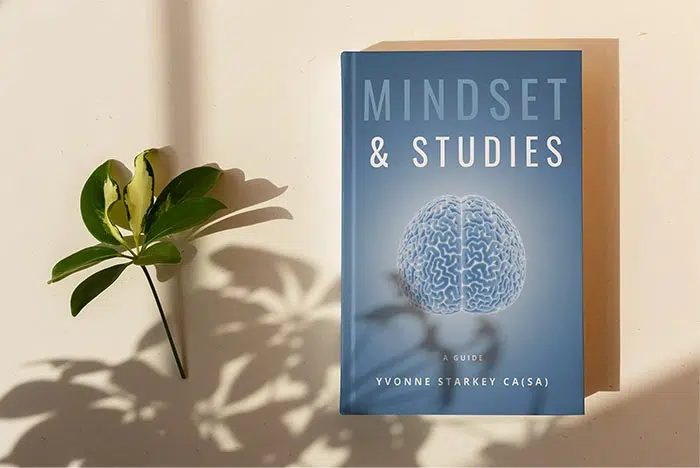



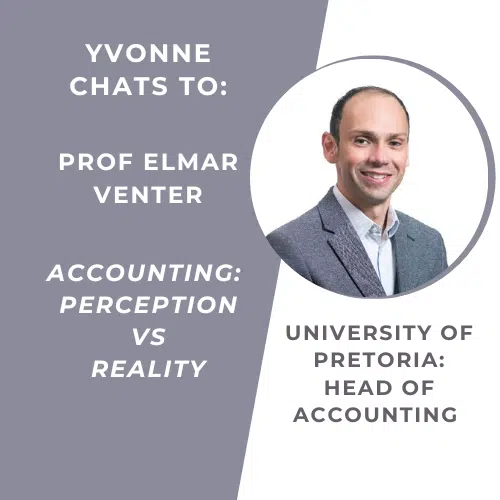


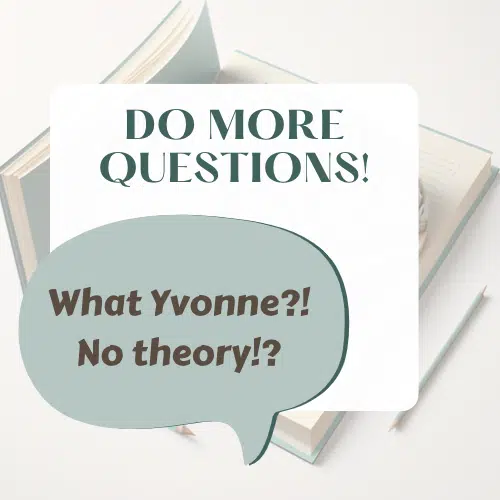
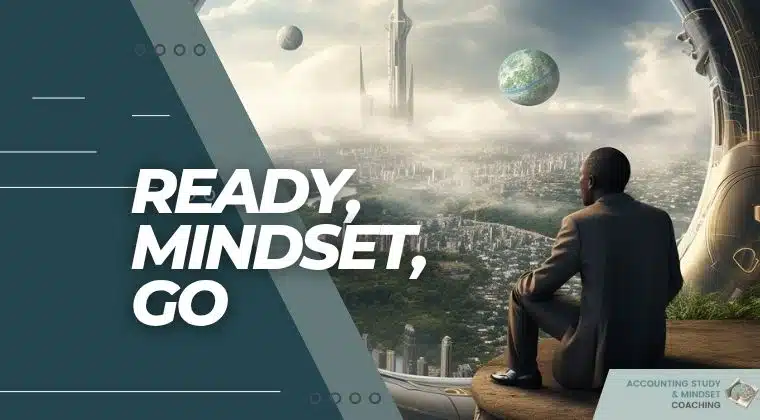
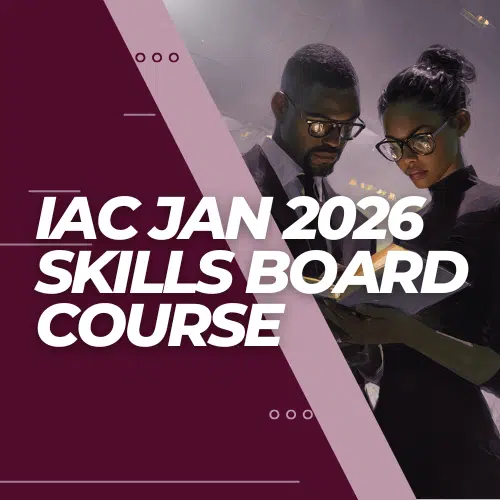
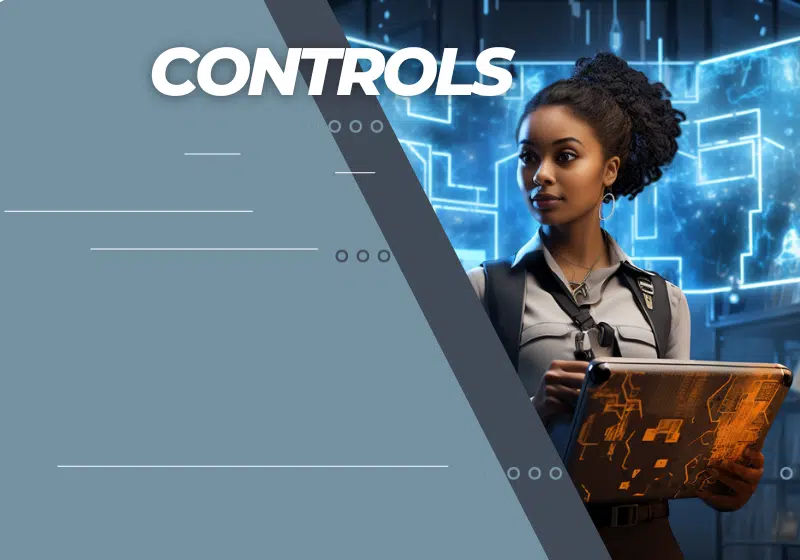
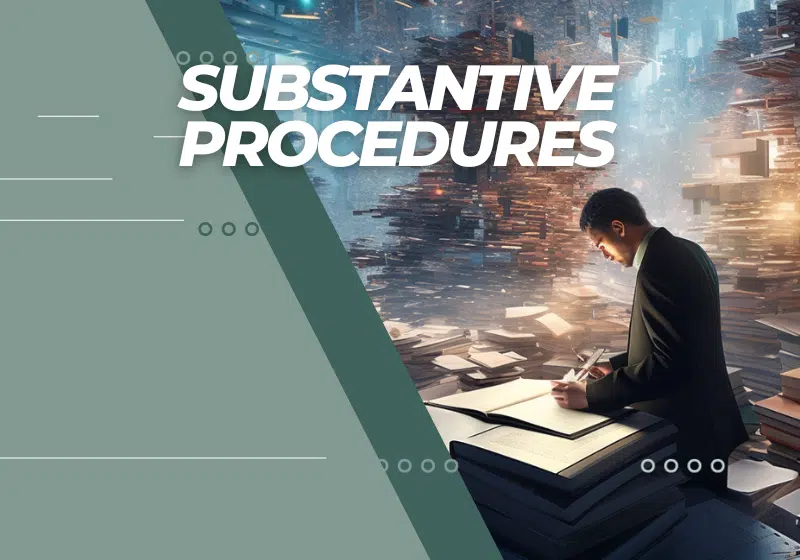


14 Comments
Thank you so much for this letter. My lecturer suggested I read this after talking to him and I am glad he did.
I have just recently graduated but did not meet GDA requirements and I was in distraught. My family and friends do not understand why I do not celebrate/dwell too much on the fact that I got my degree and I am graduating. It’s even harder trying to explain to my parents why I cannot just go and work. I’m really anxious about the future , I need to work on the other side I want to go back and redo my final year in order to qualify for GDA. Trying to explain all this, as confused as I am makes me feel misunderstood and even more frustrated. I have sent them this link in hopes that they will understand why I feel the way I do right now and possibly why I cannot do what they would like me to do.
Again thank you so much, I am looking forward to reading the rest of the series. I know I will gain a lot from it.
Thank you for your comment.
I’m really glad this has helped you. I do hope that it helps your family understand the reasons for your decisions and dreams. Good luck for the year!
Thanks for letting me know!
Yvonne
You are God Sent, thank you very much.
I have always been a cum laude student until I did CTA L2 with Unisa and failed in 2016. Most of my family members I could tell they didn’t understand how a genius in their own eyes can fail . Thanks for the letter.
You are such an inspiration – being a former Tabaldi student and have had a privilege to be taught by you ( AUE3701)
keep up the good work…. the impact you have on future CA SAs is immense
Thank you Tsiame, that means a lot to me 🙂 You keep on doing what you’re doing 😉
Thank you Tsiame, that means a lot to me. 🙂 You keep on doing what you’re doing! 🙂
I got very emotional reading this post, especially when talking about the amount of time we sacrifice with family and friends.
I still carry with me a large amount of guilt for the times I missed along my qualification journey and the friends I had to leave behind. Reading this article helped me to understand that those who I lost along the way were never true friends and those who are still with me today are lifelong friends.
I recently passed the November 2017 APC but couldn’t fully enjoy the moment because I have never truly let the guilt go. I now realise that the seven years I spent studying was ABSOLUTELY necessary for me to get to where I am today, in a position to help those I love most.
Thank you for the post!
Sounds like congratulations are in order! Well done for completing your qualification 🙂
Yes, it’s very hard to keep making those sacrifices all the time, for so many years. It’s not really ‘fair’ to say that the people around us should bear the consequences of our decision to do this qualification… but the reality is that we have to do what we feel is necessary for our future, and this one requires a lot of sacrifice.
I wrote this article to try help the family and friends of CA-students understand that the sacrifices don’t come easily, and WHY they need to be made… more understanding may help!
I hope you and your loved ones are able to put all that behind you and enjoy the next phase in your career!
Hi Yvonne,
I am only reading your article now but, I believe it still applies.
I am now in the situation where I have deferred two exams in my undergrad degree, and I believe I know why you strongly discourage doing so. I am now 2 days away from my deferred exam date, and I am freaking out even more than the first time. I will definitely not do this again.
I am actually a SAIPA student in my second year of articles and always wanted to keep the option of doing SAICA if I thought that I could do it. Which seems silly now if I can’t even manage my undergrad. I am now seriously scared of failing my modules because I didn’t keep my time for preparation between every other challenge we face, registering for more modules and raising my daughter.
At the end of the day, I know I can’t give up, I don’t want to give up, I just don’t know how to make myself believe that it will be ok. Which is desperately scary if you have others who depend on your success. My confidence is crushed, and I feel derailed.
My point is, I realized I have made it a lot harder for myself by deferring than it could have been.
thank you for your articles.
Best regards.
Hi Danielle!
Thanks for your comment 🙂 I TOTALLY understand you. I really do encourage you to write those exams, REGARDLESS of what happens. I’d like you to watch this: https://youtu.be/uEWfvI-NTc8
It comes from my Study Coaching courses, and although it’s too close to you for you to go through this now, this video might give you an alternative thought process to start with. Once these exams are over, I REALLY suggest you work through my Study Coaching Basics, because it will give you a WHOLE bunch of stuff to think about, which I believe would impact your decisions about whether you should / might continue the CA-route.
Your decision-making with regard to this is based on a Fixed mindset, and if we can work on a Growth mindset, your study process will change completely. 🙂 If your marks and results are based on study habits created from a Fixed mindset, then this means that your results and ability to pass is NOT based on whether you’re smart enough to be a CA… it’s based on fear, and theory-based studying 🙂 I’ve also written a bunch of articles on this topic… https://accountingstudyadvice.com/perfectionism-mindset-beliefs/
I’d really like you to take a look. Because I REALLY don’t want you to go through life thinking that you can’t be a CA because you’re not ‘smart’ enough to pass this stuff.
🙂 Keep going! I seriously respect your commitment to your career, and your family. It’s tough enough to study, I can’t imagine how tough it is to balance that with being a mom!!!
Hi Yvonne,
Thanks a lot for putting out this content, it’s really helpful. I am not sure if this is to late to ask, my wife is currently doing these studies, I believe she is doing the Advanced Diploma in Accounting online with Unisa on a full time basis, which is a bridging course since she did an honours in Accounting degree in a foreign country. She recently failed one of the courses, fortunately she got an opportunity to write a Sup. We are currently having challenges going forward, she now ridicules and blame Unisa, claiming they offer no support and she would now like to change university and move to another one. I am really having a hard time comprehending this as this comes with significant costs associated. I would like to know if possible an expert opinion from yourself how rational this is, whether her requests are reasonable, or they could be out of panic since it is a stressful program. I generally know Unisa as a very reputable institution, I know they have been sending study resources, online lectures here and there, tutor support available for free etc. Your opinion will be highly appreciated
Hi there,
If she only has the one supp, then I really hope that she passes! I’ll hold thumbs for her 🙂
As for her concerns surrounding the support / resources / assistance related to her UNISA studies… they’re completely valid concerns.
Yes, UNISA is reputable. Yes, there are resources available. Yes, they make online lectures available ‘here and there’… BUT… there is no way this compares to the type of tuition and support she’d get from a different institution / university. Here are a few considerations:
– The volume of work in CTA is insane. If she hasn’t come out of the same system (ie: the same undergrad degree), then she won’t have the same topics / levels / knowledge, and so her starting point is a little different as well.
UNISA has five subjects, each of which has a huge syllabus. Working on your own to get through the topics to a point where you can work with them to exam-level takes far more time than having someone explain it to you in a way you understand. You need to cover multiple topics a week, while it generally takes at least a week to get to grips with a topic on your own, from start to ‘kinda-almost-making-sense-of-it-but-not-really’ 🙂 If nothing else, proper classes / videos / lectures are a huge help, because instead of spending hours trying to figure out what on earth Deferred Tax IS before you can actually start trying to do anything with it… someone can explain it to you, and speed up the process
– You mentioned that UNISA has online lectures ‘here and there’. Given 5 subjects, 4 Tests starting from early March, the volume and levels of the work required… this is like putting a plaster on a chainsaw wound. Yes, it helps, but it’s nowhere near enough.
– One of the challenges of CTA is that the subject knowledge and the USE of the subject knowledge is not the same. You need to know the technical stuff, but you need to be able to explain, discuss, recommend, apply etc… and while UNISA’s material spends a lot of time providing the technical stuff, they’re not great at helping to bridge the gap between technical and professional skills with regard to the different topics. This may not sound significant as you read it… but I can tell you that this issue is largely responsible for CTA failures. The stuff in the tutorials and study guides just don’t ‘look’ like the questions in exams.. there’s a ‘difference’ that they can’t necessarily articulate, but it’s enough to make them supremely uncomfortable, they don’t know how to answer the questions, and generally, it plays out as complaints that UNISA doesn’t want them to pass, or their questions are unfair. The reality is that there’s a major gap between ‘knowing’ and ‘using’. The material helps the ‘knowing’, but there’s no guidance for the ‘using’.
– The profession is changing. The Board exams are changing. CTA has changed, and is changing (You’ll see another article on my site here about ‘why CTA questions have changed’)… this is another reason that support is so crucial, or at least understanding how these changes should be impacting studying.
– UNISA is notoriously tough to get hold of when you need them. They’re also not consistently fabulous at helping you understand why you’re not ‘getting it’ and how to fix it. Their response mostly revolves around “Go through the material again”. This is not helpful for someone who doesn’t quite understand what they’re missing.
I want to make it clear that there are great lecturers at UNISA. I think the volume of students, the timelines, the admin, work and infrastructure makes it incredibly tricky to even try to compare to the support you’d get from a different institution.
There are a few UNISA tuition providers that bridge these types of gaps. You can take a look at Tabaldi, for example (https://www.tabaldi.org/support-for-cta.html). We provide online classes, with pre-recorded videos of the entire syllabus, our lecturers are available for support etc. This provides the academic support that students need. Honestly, I cannot imagine trying to study through UNISA without some form of outside support like this. It’s not just about ‘passing’ the exam… you need to be LEARNING the stuff to use in Board exams etc… so yes, there are students who’ve ‘spotted’ or scraped through the system without actually understanding stuff, but it does catch up with them at later levels.
Non-UNISA options (that are not universities) include Milpark CA Connect; IAS; Regent Business School. Yes, they’re more expensive than UNISA, but the support is completely different… you’ve gone from being a student number, to a customer (HUGE difference, and a really good reason for students to use private education providers! At a university, you will always be a student number… at a private institution, you’re a customer!)
If your wife has not collected and burnt her textbooks, made little voodoo dolls of UNISA lecturers and all those responsible for her exams, and isn’t curled up and crying in a corner vowing to never see the light of day again… I think you’re winning 🙂 Ok… perhaps an exaggeration 🙂 But, CTA (as you are probably aware by now!), is a SERIOUSLY emotional, intense and tough journey. There is SO much emotional investment, SO much energy, nearing obsession, so much intensity and hard work… and not making it is utterly gut-wrenching and soul-destroying.
If I was going to do CTA again (and I thank the good Lord every day that I don’t need to!), I would sell a kidney (or perhaps my husband’s kidney while he was sleeping!), and pay for CTA at a different institution where I can get support from the people setting my exams, a properly structured lecture schedule where ALL the topics are covered and I have a consistent, quick and reliable method of contacting, querying, getting help and working with my lecturers. Where I can send them questions I’ve done and ask how I should be improving, what I need to work on, what I need to re-visit etc.
UNISA is responsible for a HUGE percentage of CA(SA)’s. (Me being one of them, obviously!). They make it possible for those who cannot attend universities to qualify. Their CTA class is HUGE compared to most universities (thousands, as opposed to hundreds). So I have a lot of respect for UNISA’s place in the system. I’m super-grateful for what they do. However, a UNISA journey comes with challenges, and as a student, you want to make sure you put yourself in the best possible position you can to prepare you to pass.
I hope that helps a little? 🙂
Thank you Yvonne. I’ve been following you since my undergrad days and although it’s mostly when things don’t seem achievable there’s always a new perspective to think from.
With the last board exam awaiting my conquering after 2 attempts thus far I can relate to the Fixed vs Growth mindset now more than ever. The question style approach that required me to go through and learn from as many questions as possible and helped me conquer CTA and ITC is now feeling like near impossible with work now being thrown into the mix.
I only started passing my tests from test 3 in CTA and I was still determined to go through as much content as possible because I believed that this effort is not being wasted. I’m finding it particularly harder now to do so as I feel like the effort is not as intense from a technical side and I keep looking for that intensity because it has worked before.
The search for this intensity has, as you may know, deferred the reflection time with my current preparatory exams in the boardcourse and my past papers because for some reason I’m convinced the problem is out there and not inside.
I’ve consulted with people that have been successful with the APC thus far and majority of them preach belief in one’s self and knowledge and exam technique. So now I try to sneak in the motivational videos to keep me going but the dreaded mindset of not finding the intensity I’m looking for keeps showing it’s head and reversing all that progress.
APC feels wide and clear cut at the same time especially in hindsight when I eventually look through the answer sheets.
I actually came here to find justification for quitting my job and focusing on books for the rest of the year as I feel like it’s taking too much of my time and my learning progress is behind but low and behold I have found a new perspective as always.
I’m beginning to slowly accept this new way of studying even though it’s excruciatingly hard to do so and just like bad habits, hard but not impossible to beat. Perhaps it’s not correct to call my past studying ways as bad habits but rather incompatible approach for the current level of study.
Anyway until my next breakdown and hopefully more success.
Hi there… sorry I was quiet, we were travelling and my postgrad students were getting REALLY close to exams, so they take up more mental energy and time.
Some interesting decisions and paths you’re taking and making 🙂 I know the temptation and the feeling of “If I could just have MORE hours, less to focus on, can just focus on THIS thing, it’ll ALL be better”… I understand that. I would suggest though, that you shift your study approach BEFORE you do that. The challenge there is that if you have more time, your brain goes straight back to older habits. Your brain tells you “See? It’s all fine now, we have the time to do what we REALLY want to do… which is work through ALL the content. Don’t underestimate the strength and subtleness of your brain 🙂
In terms of your studying… I added a video a few weeks ago on the wording of questions… it might help, take a look
https://youtu.be/PhOVBrGyw4U
Also, specifically for your Board Exam, perhaps email me. I have a specific Skills course that will help you with what you think of as ‘exam technique’ (I really don’t like that term, but I know students think of it like that!)
I would always be wary of taking past students’ advice 🙂 Their intentions are generally great, but they’re basing their advice on what THEY did, which includes THEIR situations, strengths and weaknesses. If, for example, you have a student who got distinctions in CTA, studied full-time, and started with a growth mindset, their study advice would probably be “don’t worry too much about doing too many questions, you know enough from CTA” (Bit extreme, I know!), my point is that we give advice based on US, not the other person. So, until you know that their circumstances, challenges etc are similar enough to yours to be comparable… be a little careful 🙂
I’m also not thrilled about motivational stuff… for a bunch of reasons… mainly because we might feel better IN THE MOMENT, but it doesn’t actually change what you’re capable of DOING, so there’s no actual improvement. Once you hit those books again, you’re straight back at square 1, because you STILL can’t see progress. Let’s be honest, actual PROGRESS is the MOST motivating thing, right!? Which means we need to focus on what we DO, not how we feel.
The main reason we like and want motivation, is because it makes it EASIER for us to START if we feel motivated. It’s a LOT easier to sit and study when we FEEL like it, than when we DON’T feel like it 🙂 Honestly.. that’s probably the only real value motivation has… and that’s like a cup of coffee… it’s great at the time, and drops you pretty quickly!
I can help you… email me… let’s see how I can assist 😉 Yvonne@accountingstudyadvice.com
And thank you for sharing your journey… other people need to hear from REAL students, with REAL challenges. I know there’s so many people struggling and not wanting to say anything because they feel alone. So, thanks! Keep sharing your journey!